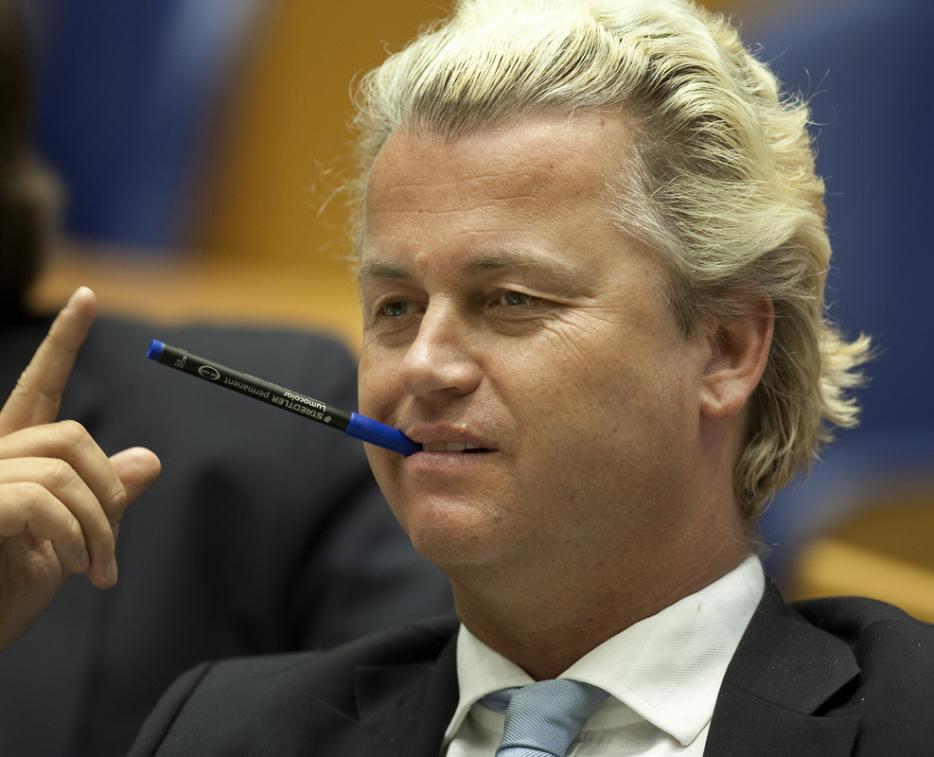The Netherlands was one of the first of the modern “welfare states,” creating a model in the 1930s in which the state invested in the general well-being of its citizens. They get awesome things like vakantiegeld (“vacation money”) dropped into their accounts every summer, and extra Christmas money too. Those in need can access rent benefits, unemployment insurance, and benefits for the elderly. However, the very awesomeness of these benefits also makes some Dutch voters loath to pony up for people who they perceive as undeserving.
In recent years, a right-wing has sprung up in the Netherlands consisting of parties like Geert Wilders’ Party for Freedom, which advocates abolishing the minimum wage, limiting government subsidies, and cutting taxes; it also takes the view that immigrants must assimilate to Dutch society. In the current issue of International Political Science Review, sociologists Willem de Koster, Peter Achterberg, and Jeroen van der Waal from Erasmus University Rotterdam investigated the question of how perceptions of the welfare state contribute to voter support for far-right parties.
The researchers differentiate between two attitudes about welfare: welfare chauvinism and welfare populism. Welfare chauvinism is the belief that the social benefits provided by the state should only be accessible to the country’s “true” natives: the researchers note that the term “was introduced by Andersen and Bjørklund (1990), who aptly summarized the underlying sentiment as the idea that ‘welfare services should be restricted to our own’ (1990: 212).” The Netherlands has historically been a pretty homogeneous society, and immigration is a sticky issue. Welfare chauvinists believe that wealth should be redistributed to benefit the population as a whole, but that only certain people should be able to access benefits.
Welfare populism is a term the researchers have come up with to describe the belief among some Dutch voters that the current welfare system caters to “scroungers” instead of properly taking care of “the common man.” Like welfare chauvinists, welfare populists also believe in an egalitarian distribution of wealth, but their caveat is that those “really” in need—the elderly, the handicapped, and the unemployed—are not well served by the Netherlands’ current welfare state.
For this study, the researchers used a survey of a representative sample of the Dutch population from 2006, administered to 1,972 people. They measured a bunch of different things to try to get at the distinction between welfare chauvinists and welfare populists. Levels of support for including immigrants in economic redistribution were measured by asking respondents to agree or disagree with statements like:
“In the future, non-western immigrants should have fewer entitlements to social assistance than Dutch natives.”
And:
“In the future, economic refugees should have fewer entitlements to social assistance than Dutch natives.”
Respondents could express how happy they were with the welfare state by agreeing or disagreeing with the statements like:
“The welfare state makes people lazy.”
And:
“The welfare state worsens the position of the Netherlands in relation to other countries.”
Respondents could also express their feelings about egalitarianism in general by evaluating statements like, “Large income differences are unfair because everyone is essentially equal,” and their attitudes about cultural issues by rating statements like, “Most of our social problems would be solved if we could somehow get rid of immoral, crooked, and feebleminded people.”
By comparing answers with voting data, the researchers discovered a few things about how attitudes towards welfare play into voting behaviour in the Netherlands. Supporters of the new rightist populist parties were found to show high levels of welfare chauvinism despite the fact that they also showed an egalitarian stance—income redistribution is a good idea, but only for “the Dutch.” This is a shift in right-leaning voters’ ideology—the traditional view of the right-leaning voter is anti-egalitarian, so not in favour of income redistribution at all. The new right is still racist, but it’s also in favour of a more economically just society. The researchers found that people voting for the new rightist parties showed high levels of welfare populism as well; they were critical of the welfare state even though they supported it in principle.
The researchers concluded that it is essentially perceptions of how well the welfare state currently serves “the common man” (more than just an aversion to sharing welfare benefits with immigrants) that drives conservative voters to the new right. They went on to say that it is possible that since 2006, popular sentiment about how well the welfare state works has become increasingly important in drawing votes to the new right: “Since then we have witnessed a strong growth in the electoral success of Wilders’ Party for Freedom, strikingly matched by a decline in the electoral popularity of old-leftist parties in the Netherlands... This leads us to believe that the electoral relevance of welfare populism may have grown since 2006.”
It’s sort of hard to fathom how a country can have such a strong tradition of helping people out by providing awesome services and benefits, but also have a faction that so strongly believes that only some people deserve them. The notion of what makes a “deserving” welfare recipient is a slippery one—once you accept the idea that “Large income differences are unfair because everyone is essentially equal,” everyone is equally deserving.






